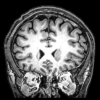I do not suffer from schizophrenia myself, but I found this this interesting article on niacin aiding in NAD+ synthesis and thought I'd share. Given that other NAD+ precursors like Nicotinimide Riboside and Nicotinimide Mononucleotide replenish NAD+ more efficiently, wouldn't these be preferable for aged individuals with less NAMPT? Or perhaps a combination of Niacin and other precursors would be best?
Penberthy, W. Todd, Journal of Orthomolecular Medicine . 2012, Vol. 27 Issue 1, p29-38. 10p.
Abstract:
A reduced niacin-mediated flush is increasingly accepted today as a positive diagnostic indicator for schizophrenia. Schizophrenics that were successfully treated with high dose niacin (nicotinic acid) therapy by Dr. Abram Hoffer in the 1950s recovered from their otherwise previously reduced flush response simultaneous with recovery from schizophrenia. Significantly, some schizophrenics also recovered after high dose nicotinamide treatment, a different nicotinamide adenine dinucleotide (NAD) precursor that does not cause a flush response. Whether the niacin-flush response is first due to replenishment of NAD deficiency or due to a restoration of polyunsaturated fatty acid levels thus restoring niacin-flush competence is not mutually exclusive. It is possible that nicotinic acid is first dedicated to intracellular NAD synthesis at the expense of the flush response until the schizophrenic's immediate needs for NAD are finally met. Then the nicotinic acid, rather than entering the cell through transporters, instead becomes available to bind GPR109a, on the surface of the cell thus mediating the flush pathway. Moreover the restored NAD levels may also revive the biosynthetic pathway required for generation of the known niacin-flush vasodilatory molecules PGD<sub>2</sub>, PGE<sub>2</sub>, PGI<sub>2</sub>, and thromboxane A<sub>2</sub>. The schizophrenic patient may potentially benefit by additional supplementation with arginine to aid in restoration of the vasodilation, and glutamine to increase NAD synthesis. Arginine increases the amount of nitric oxide (NO) synthase substrate available towards more sustained niacin-NO-vasodilation pathways, while glutamine increases the amount of required substrate available for conversion of nicotinic acid adenine dinucleotide to NAD. The addition of these two amino acids with high-dose niacin therapy has the potential to provide significant additional therapeutic benefits when treating schizophrenia, especially the chronic cases.
NAD+ and sirtuins in aging and disease,
Shin-ichiro Imai, Leonard Guarente, Trends in Cell Biology, 29 April 2014, ISSN 0962-8924
Some points -
- NR can be converted to NMN (NR-> NR Kinase -> NMN)
- NR boosts NAD+ " in worms and mice and can counter effects of aging 18 and 40. NR supplementation also increases mitochondrial NAD+ levels and stimulates SIRT3-mediated deacetylation of mitochondrial proteins [40]."
- Circadian Machinery declines with aging, results in less NAMPT and NAD+, meaning "...NMN and NR, rather than earlier NAD+ precursors like nicotinamide would be critical in enhancing NAD+ biosynthesis efficiently in aged individuals."
- Chronic inflammation could be to blame - TNF-? significantly reduces NAMPT and NAD+ and "...suppresses CLOCK/BMAL-mediated clock gene transcription in the liver and SCN of TNF-?-treated mice [43]. [...] If this is found to be true, strategies to suppress chronic inflammation and sustain NAD+ biosynthesis and circadian function with aging might be effective in maintaining sirtuin activity and possibly robust health [9]."
- "PARP, CD38, and the nuclear sirtuins all compete for the same pool of NAD+ and inhibition of PARP or CD38 has the potential to activate sirtuins. [...] A possible explanation for these findings is that aging is associated with an increase in chronic nuclear DNA damage, which leads to NAD+depletion by PARP (Figure 4, left). The fact that loss of SIRT1 or SIRT6 activity exacerbates DNA damage[12] may create an autocatalytic downward spiral in the nucleus, with NAD+ depletion as the nexus."
Edited by LexLux, 31 May 2014 - 07:43 PM.














































